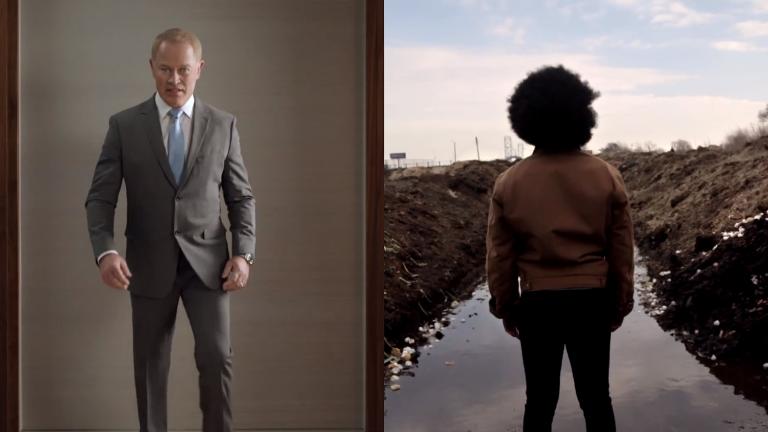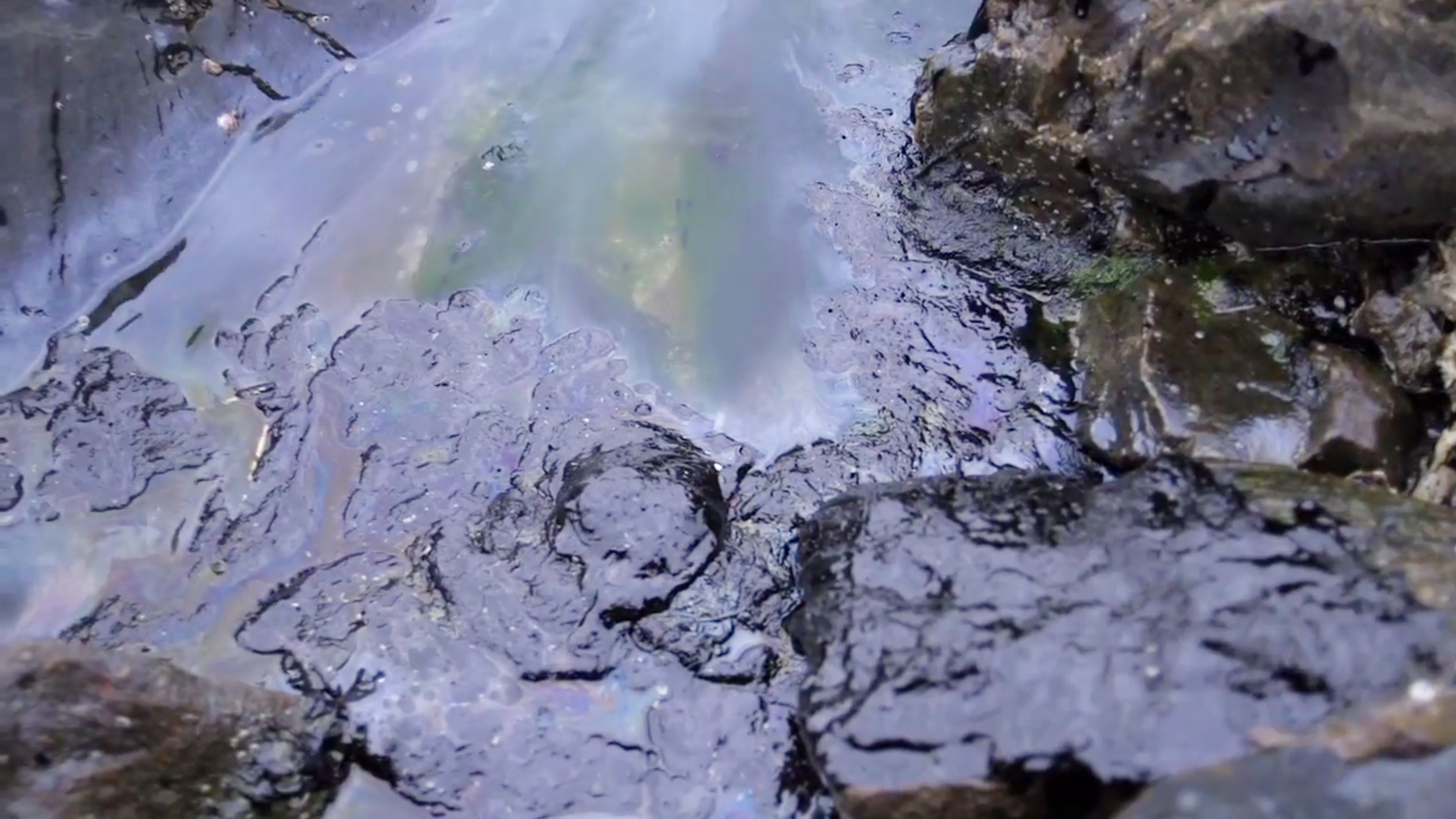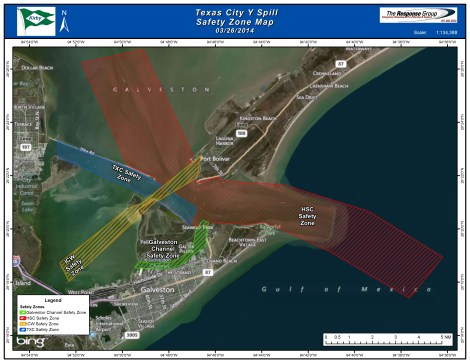When an oil barge collided with a container ship on Saturday in Galveston, Texas, as many as 168,000 gallons of fuel were spilled into the estuary, threatening wildlife and shutting down the busy port for days.
Yadda yadda. Different spill, same old spill news.
Here’s a slightly different view than you might be used to, from Project Survival Media. Turns out that oil is less beautifully troubling, and more palpably gross, from the shorebird’s-eye view, where it churns in the waves like salad dressing gone wrong.
That lumpy goodness is probably IFO-380, or what’s left after all the gas and diesel and kerosene have been taken out of crude oil. “It’s commonly referred to as bottom of the barrel stuff,” as Greg Pollack, a local oil spill prevention commissioner, told the Galveston Daily News. It usually floats near the surface, which is good for cleaning crews, but sometimes sinks when it gets close enough to shore to start picking up sediment. Unlike crude oil — which is what spilled the last time this area got slicked, by Deepwater Horizon in 2010 — this heavy fuel oil won’t evaporate, so leftovers may circulate far and wide.
Texas officials released a map of the spill’s probable extent on Wednesday. (Just to be clear, the “safety zones” are the ones where you’re NOT safe from getting oiled.)





